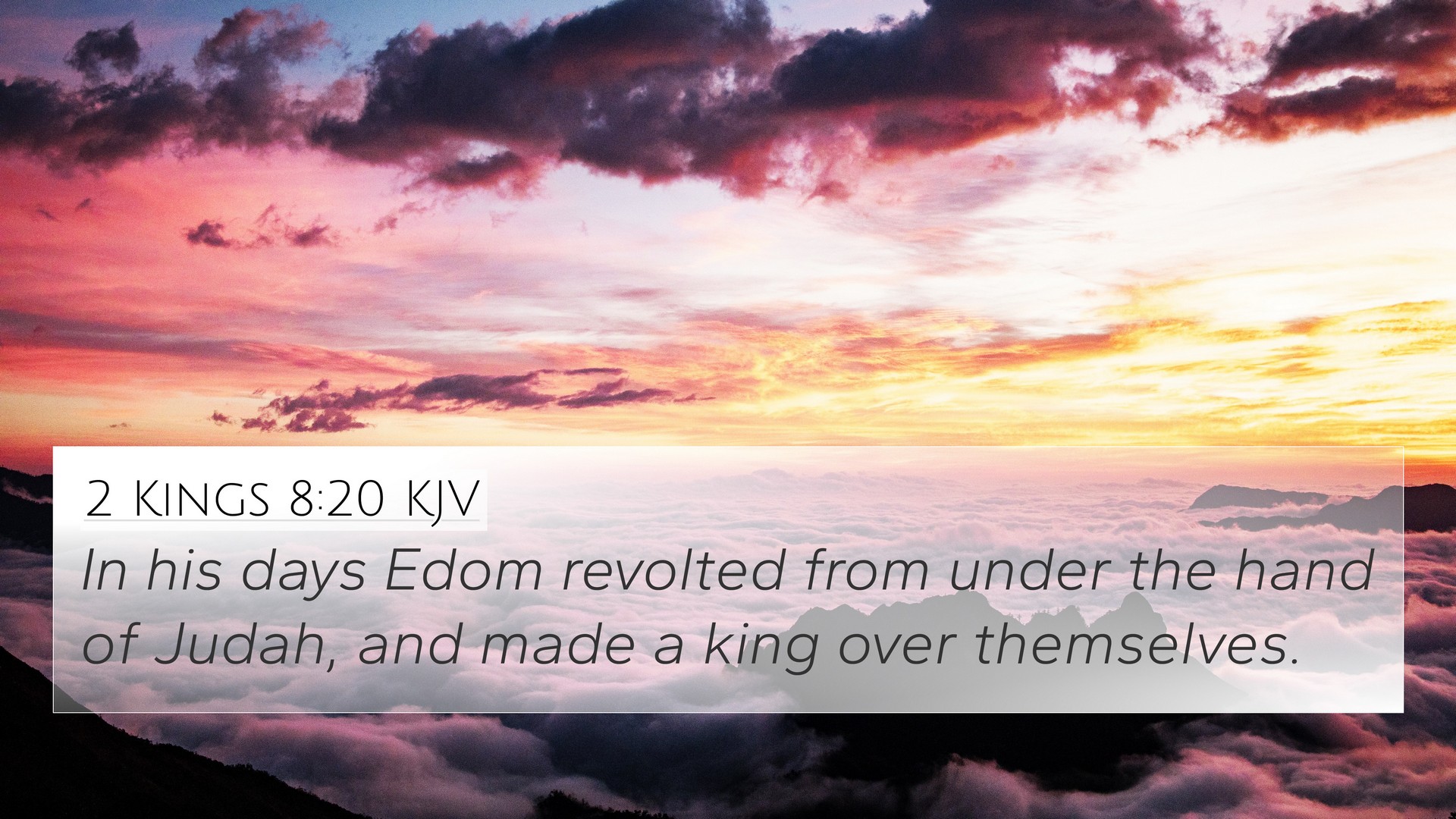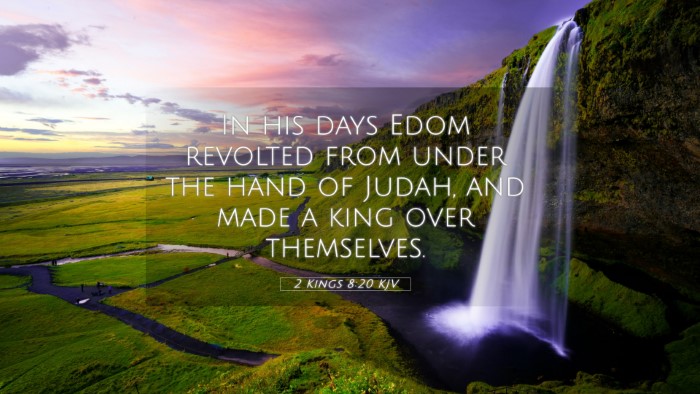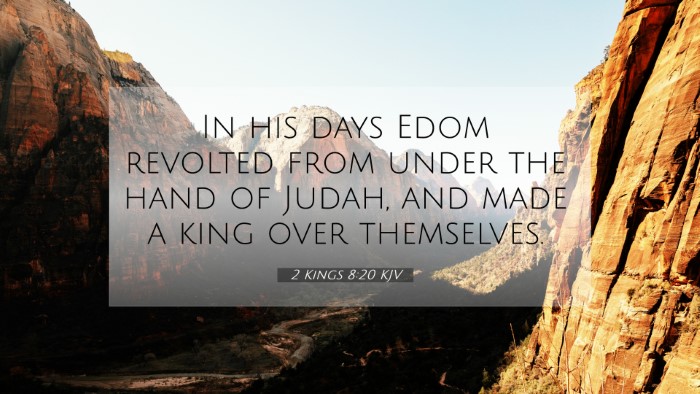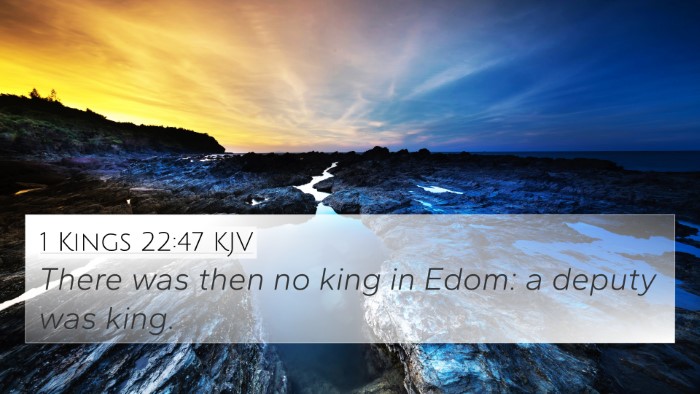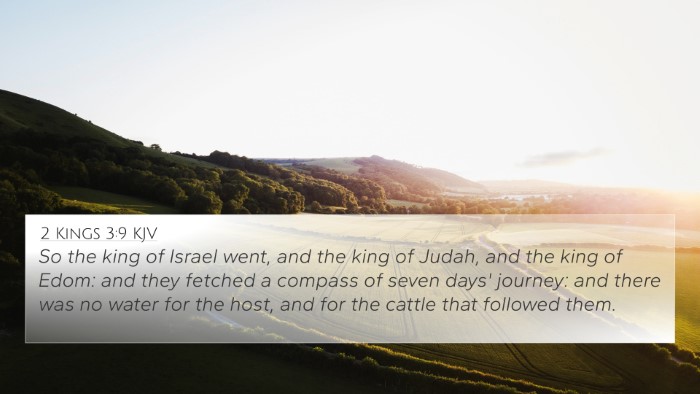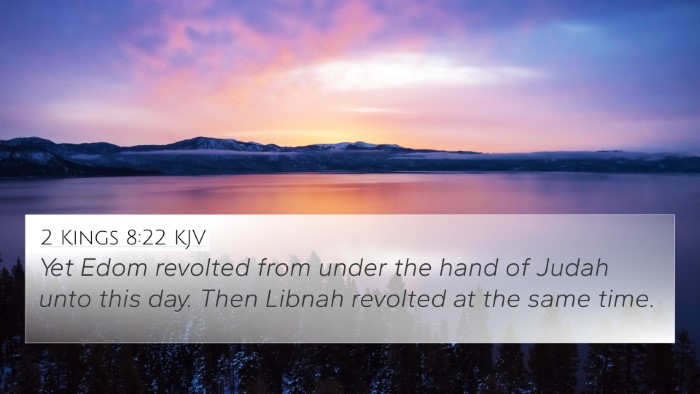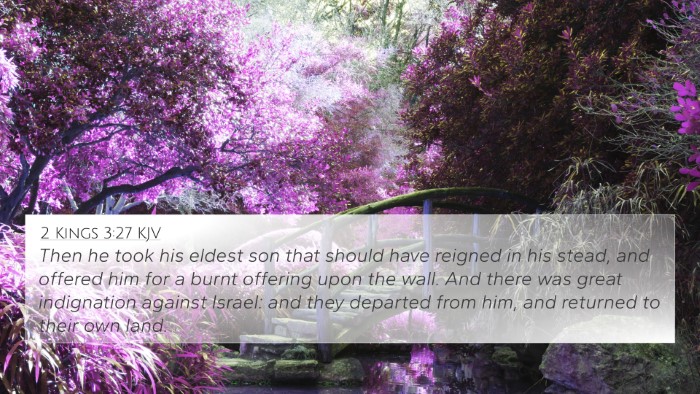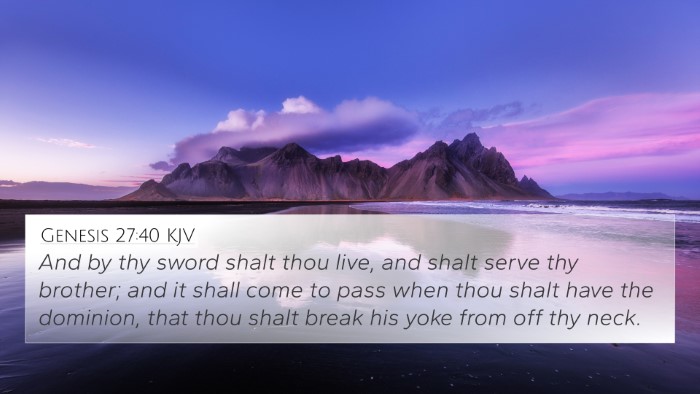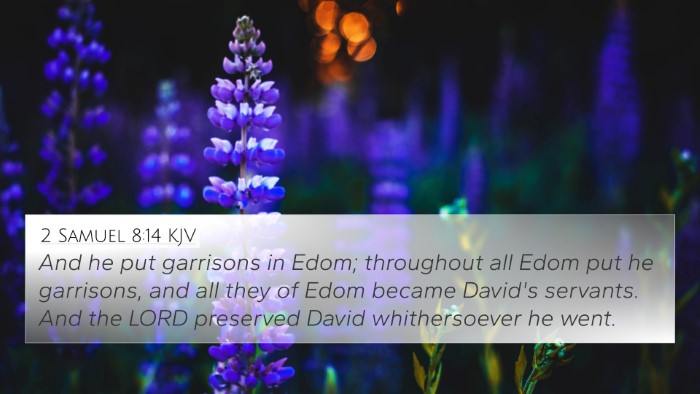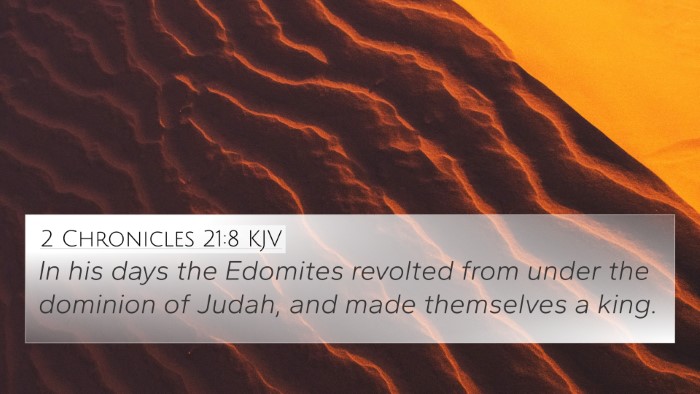Understanding 2 Kings 8:20
Verse: "In his days Edom revolted from under the hand of Judah, and made a king over themselves." (2 Kings 8:20)
Summary of the Verse Meaning
This verse speaks of a significant political shift during the reign of King Jehoram of Judah, where Edom, a neighboring nation, revolted against Judean rule.
Context and Background
At this point in Israel's history, the kingdom of Judah was experiencing internal strife and external challenges. The mention of Edom's revolt highlights the weakening grip of Judah over its territories and foreshadows future turmoil.
Insights from Commentaries
- Matthew Henry: Henry emphasizes the sovereignty of God in the affairs of nations. He points out that even though Judah faced internal chaos, God's overarching plan remained intact. The revolt signifies not just loss of territory but also the divine judgment over a disobedient nation.
- Albert Barnes: Barnes elaborates on the political implications of the revolt, describing it as an assertion of independence by Edom. He notes the historical context, where Edom had previously been under Judean control, and discusses the consequences of failing to maintain a strong leadership in Judah.
- Adam Clarke: Clarke reflects on the nature of interrelations between regions, highlighting how revolts are often indicators of underlying issues such as oppression or poor governance. He also explores the broader prophetic significance of this event within the narrative of the southern kingdom's decline.
Cross-References and Related Verses
To enhance our understanding of 2 Kings 8:20, we can look at several related biblical texts that illuminate this event further:
- 2 Kings 3:9-20: This passage discusses the relationship between Israel and Edom and their military confrontations, outlining prior tensions.
- 1 Kings 11:14-22: These verses detail the origins of Edom's enmity with Israel, as well as the establishment of their independent rulers.
- 2 Chronicles 21:8-10: Chronicles provides a parallel account, emphasizing the significance of Jehoram's rule and the resulting revolt.
- Amos 1:11-12: Amos prophesied against Edom, hinting at the long-standing conflict and their desire for independence.
- Obadiah: The entire book addresses the fate of Edom and its relation with Israel, capturing the broader themes of rebellion and prophecy.
- Jeremiah 49:7-22: Jeremiah's prophetic words provide further context for Edom's downfall and their tumultuous history with Israel.
- Hebrews 12:16: This verse discusses the repercussions of despising one’s birthright, paralleling with how Edom's actions reflect larger themes of rebellion.
Thematic Connections and Reflections
In analyzing 2 Kings 8:20, we find multiple themes emerging:
- Rebellion and Independence: The revolt signifies a struggle against authority, which can be seen as a metaphor for spiritual rebellion against God's authority.
- Judgment: This event serves as a reminder of God's judgment upon nations that turn away from Him, reflecting on the consequences of disobedience.
- Leadership Failures: The political instability represented in this verse correlates with the broader spiritual declension seen in the monarchy, underscoring the importance of righteous leadership.
Bible Study Techniques
To deepen understanding of connections between Bible verses, consider employing these tools for Bible cross-referencing:
- Utilize a Bible concordance to identify related themes and terms.
- Implement a cross-reference Bible study guide as part of your regular study routine.
- Explore comprehensive Bible cross-reference materials available in libraries or study guides.
Finding Cross-References
To effectively search for verses related to 2 Kings 8:20, consider these strategies:
- Use Bible cross-reference systems built into many study Bibles for quick linkages between scriptures.
- Identify connections between the Old and New Testament themes, especially regarding God's covenant with His people.
- Engage in cross-referenced themes in the Bible to connect ideas across various books and genres, enriching understanding and insight.
User Intent Considerations
When researching 2 Kings 8:20, focus on user intent by asking:
- What verses are related to 2 Kings 8:20?
- How do 2 Kings 3:9-20 and 2 Chronicles 21:8-10 connect in terms of historical context?
- What are the similarities between 2 Kings 8:20 and the prophetic references in Amos?
Conclusion
In examining 2 Kings 8:20, one uncovers a rich narrative of rebellion, divine judgment, and the dire need for godly leadership. The interplay of historical context and scriptural cross-references provides a deeper theological layer, underscoring the importance of understanding scripture within its broader biblical narrative.
